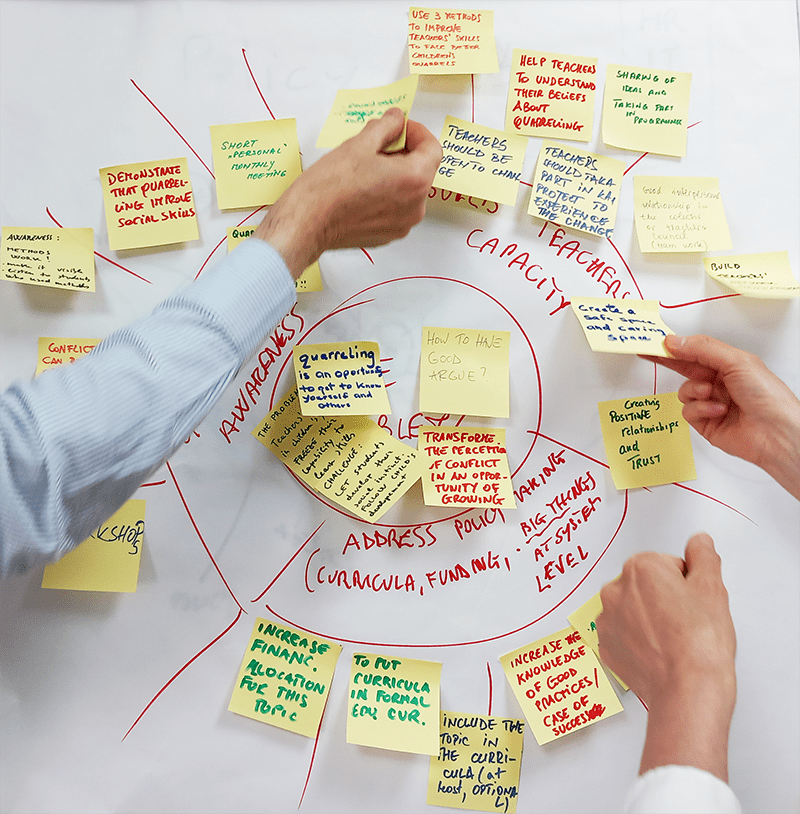What would our communities be like if we learned how to address conflict as children, or teens? What would our schools, our neighbourhoods and our cities be like if we had learned to listen to each other, to recognize our emotions and those of others, to express in a clear and serene way our needs in relationships?
For more than two years our European consortium, made up of schools and educational institutions, has been working to promote the dissemination in all schools of educational approaches to quarrels that allow them to express themselves, learn and grow.
We compared and discussed among them 4 schools and 6 organisations that in different ways are engaged in the use of innovative pedagogical methods to deal with quarrels.
Early results of our research show that there are several methods capable of developing life skills in students, that these methods work and that they are transferable.
By learning to use words to quarrel with each other, students become more empathetic, autonomous and responsible.
This is a radical change from widespread quarrel management practices, which not only waste fundamental learning opportunities, but increase the stress of students and teachers.
In the last decade, these new approaches to quarrels have generally spread from school to school, in particular thanks to the commitment of individual educators and, in some sporadic cases, of whole schools.
However, we believe that the time has come to be more ambitious and to stimulate in the political decision-makers of the various countries involved in the project a greater understanding of the opportunities offered by these educational approaches.
In fact, our project also has the task of drawing up a document of Policy Recommendations (Project Result 4), but we have chosen to do it from below, involving first of all the actors of the school world, teachers, professors, school managers, local administrators, educational organisations, but also parents, no-profit sector and media.
On Saturday, October 21 we will meet in Milan at the Library of the Scuola Civica Polo Alessandro Manzoni to live together the experience of our first “Policy Lab”, with the accompaniment of Claudio Dondi (who has been dealing with education at European level for 30 years) and the facilitation of the partners of our European consortium.
We will discover the problem together and give ourselves a challenging goal, but reasonable.
And we will develop some first ideas to define appropriate policies on the subject.
We will then try to bring these suggestions to our environments of origin, to stimulate sustainable paths of change.
The path then plans to meet in early February 2024 to evaluate together the experience experienced in the meantime, the difficulties and potential encountered in promoting a different way of living conflicts (no longer seen as obstacles, but as opportunities!).
The policy lab is a well-established approach, based on reformulating policy challenges on the perspectives of the stakeholders involved.
With this method you don’t focus on what it should be, but what it could be. We move from finding solutions to experiencing possible advancements. It does not rely on individual ambassadors, but on communities of practices.
It wants to propose spaces and times of exploration and experimentation before arriving at general policies.
From this first experiment, the other project partners will replicate the initiative in their own country, in order to define shared general lines of intervention that allow to spread new points of reference on the theme of conflicts at school.
Photo ©Silvia Raldi


